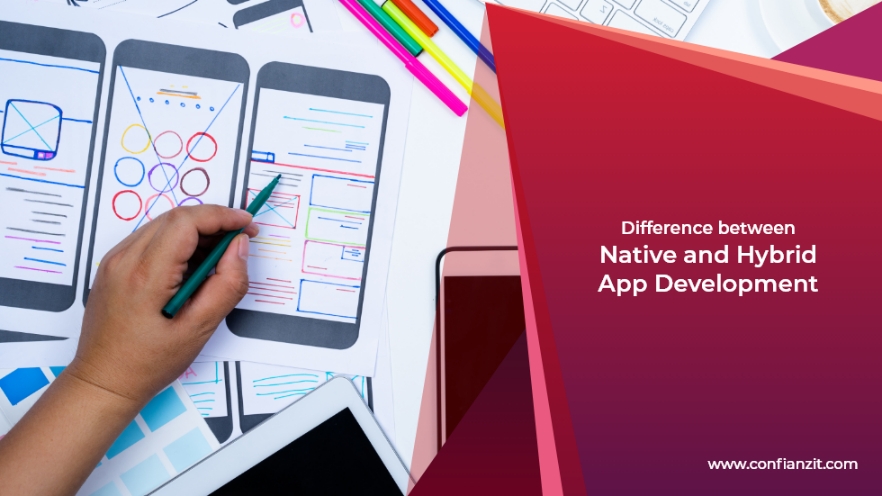Once you’ve decided to build an app, the next step is to determine whether you will develop it as a native or hybrid app. Each has its pros and cons, so make sure you understand which option will work best for your audience and business objectives.
Keep in mind that user experience trumps everything when it comes to app development. Focus on building an app that will deliver the best overall experience to your users during each stage.
Users should be able to access the app and use all its features without delays or long downloads.
Native vs. Hybrid App Development
Let’s start by defining the critical differences between these two types of app models.
Native apps are built for particular operating systems. So, think of a smartphone’s built-in text messaging platform or GPS app. An iOS native app is built using Swift or Objective-C, while Android native apps are built with Java.
Hybrid apps look like native apps but are built and fueled by a third-party website. Some examples include Instagram, Twitter, and Evernote. Hybrid apps are created using JavaScript, CSS, and HTML5.
Pros and Cons of Native and Hybrid Apps
Consider the benefits and drawbacks of each type of app when you’re trying to decide between the two.
Pros of native apps
Native apps follow the specific guidelines for an OS, making it perform faster and feel familiar to users who interact with other native apps. They work offline, even when you have limited or no internet connection. Finally, native apps are accessible for users and use built-in features, such
as the phone’s camera, Bluetooth, GPS, address book, etc.
Cons of native apps
Native apps require multiple development teams—one for iOS and one for Android. This isn’t necessarily a deal-breaker, but it can make the app development process lengthier and potentially more costly. Native apps also require more frequent upgrades. Users will need to update their apps from time to time, which can become a headache if they run out of storage space or don’t notice that a new update is available.
Pros of hybrid apps
The primary benefit of hybrid apps is that they are less expensive to create than a native app. Hybrid apps also take less time to develop, as long as you are not trying to build a ton of custom features. They are also easier to maintain and usually require fewer upgrades than native apps.
Cons of hybrid apps
Unlike native apps, hybrid apps do not work offline, so they are not ideal for apps that might be used when someone is disconnected from the internet. They are also slower than native apps and can have inconsistent performance on one platform than another.
Have an App Idea? We Can Help You Build It!
There is a lot to learn when you’re developing an app. Fortunately, you don’t have to do it alone. We have been helping customers develop apps for their users for over a decade and will work with you to determine whether a native or hybrid option is best for your users’ needs.
Contact us today to learn how Confianz can help you turn your idea for an app into a reality.







